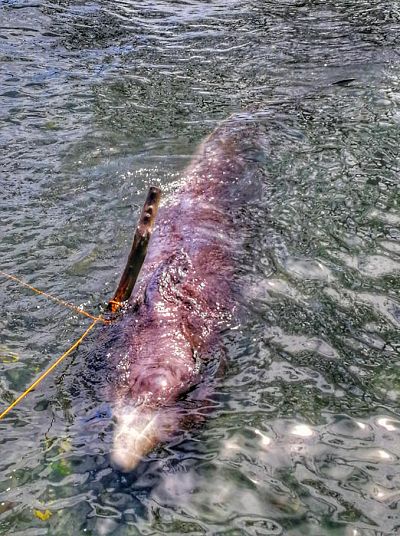The plastic included 16 rice sacks, four banana plantation bags and multiple shopping bags, according to a local museum.
With millions of tons of plastic ending up in the world's oceans every year, it's not unusual for marine wildlife to ingest some of it.
 ADVERTISEMENT
ADVERTISEMENT
 ADVERTISEMENT
ADVERTISEMENT
But a museum in the southern Philippines said it made a stomach-churning discovery on Saturday when a beaked whale measuring more than 15 feet long was found dead with 88 pounds of plastic still lodged inside of it. The creature was located off the coast of the Mabini Campostela Valley.
"I was not prepared for the amount of plastic," Darrell Blatchley, president and founder of theD' Bone Collector Museum in Davao City, told NBC News in a statement.
The plastic included 16 rice sacks, four banana plantation bags and multiple shopping bags. It was the most plastic ever found by the group inside of a whale, said the museum, a nongovernmental organization that retrieves dead animals and preserves them for educational purposes.
"It was so bad [that] the plastic was beginning calcification," Blatchley said of the process in which calcium builds up in the body and causes tissue to harden.
While examining the whale during a necropsy, Blatchley said, the animal appeared to have died from emaciation and dehydration — with the plastic hindering its ability to eat or drink. The whale had also been vomiting blood before it died, he added.
Images of the whale have gone viral worldwide, as more and more people are calling for bans on single-use plastic, often focusing on the effects of plastic on the ocean.
An estimated 8.8 million tons of plastic spill into the ocean annually. In the Philippines, Blatchley said, it's particularly bad. Over the past 10 years, his group has recovered 57 dead whales and dolphins, many of which died from plastic ingestion.
"The Philippines needs to change," Blatchley said, adding that he hopes the latest attention on the whale will shine a light on the effects of pollution before "nothing will be left."











